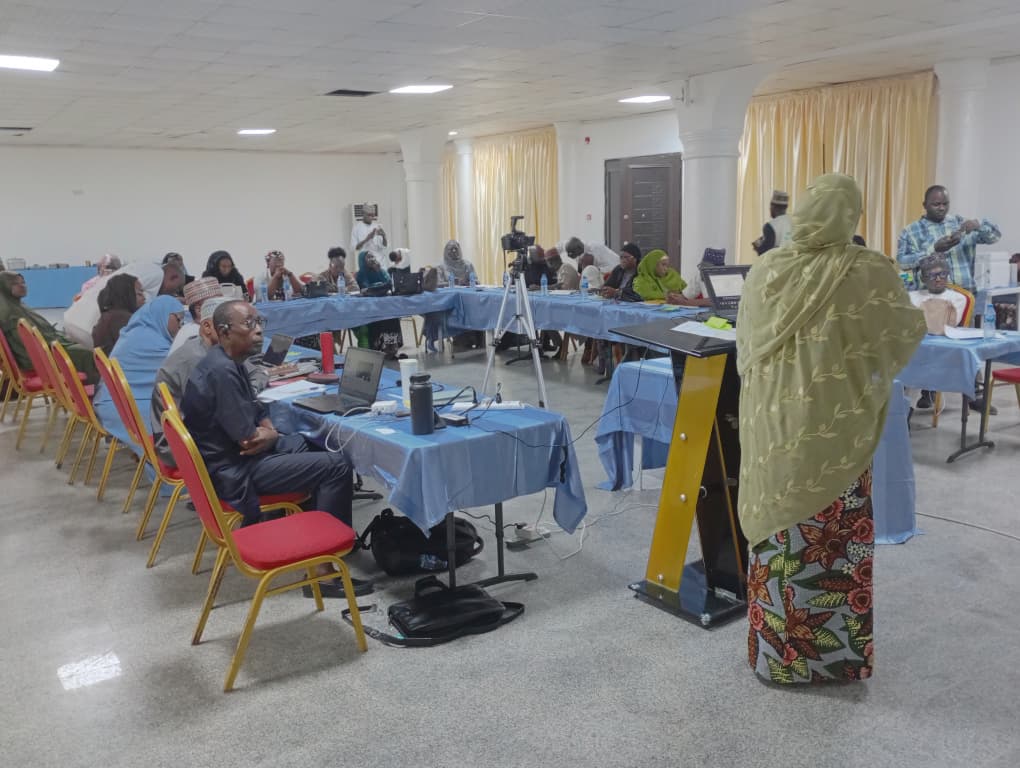From Abdullahi Alhassan, Kaduna
Civil Society Organizations (CSOs), journalists from various media outlets, and key policymakers in Kaduna State have been trained on developing and implementing SMART (Specific, Measurable, Achievable, Relevant, and Time-bound) advocacy initiatives to promote Reproductive, Maternal, Newborn, Child, and Adolescent Health (RMNCAH) and strengthen Primary Health Care (PHC) systems.
The two-day workshop, organized by the Centre for Communication and Social Impact (CCSI) in collaboration with EngenderHealth consortium partners, brought together CSOs, the media, government representatives from relevant Ministries, Departments and Agencies (MDAs), and donor partners. The aim was to sharpen participants’ advocacy skills and empower them to demand more effective action from government in addressing health challenges.
Speaking during the session, Hajiya Habiba Ahmed Aliyu, Acting Director of Family and Community Health Services at the Kaduna State Primary Health Care Board, raised concerns about adolescent pregnancy, describing it as a pressing challenge in the state. She revealed that four Local Government Areas currently record the highest cases. According to her, while early child marriage—sometimes involving girls as young as 12—remains prevalent in the northern part of the state, teenage pregnancies in the south are largely among unmarried adolescents.
Hajiya Habiba added that despite previous interventions, persistent funding constraints and gaps in workforce recruitment and retention continue to slow progress. However, she assured that the state government is revitalizing 255 health facilities, with 147 already near completion. She also disclosed that family planning commodities remain generally available, though with minor shortages of some injectables, while essential maternal and newborn medicines are being distributed with support from partners such as the Bill & Melinda Gates Foundation and UNFPA.
Dr. Anthony Shamang, representing the Gates Foundation, praised CSOs as “the voice of the voiceless” and emphasized their critical role in holding government accountable. “Unlike government reports that may paint only one side, your perspectives bring out the realities on the ground,” he noted.
Similarly, Bayo Ewuola of Pathfinder International stressed that universal health coverage cannot be achieved without stronger PHC systems and committed advocates ready to push for accountability.
Facilitating the session on SMART advocacy, Oluyemi Abodunrin, Senior Programme Manager at CCSI, explained that SMART advocacy is about setting realistic short-term wins that build momentum for long-term change. He clarified the difference between advocacy, social behavior change, and activism, noting that each has a distinct but complementary role in advancing health reforms.
The Co-chairman of KADMAM, Mallam Garba Muhammad, also highlighted the importance of advocacy and media engagement in achieving their mission, thanking EngenderHealth and partners for empowering civil society to raise stronger voices on behalf of women, children, and vulnerable groups.
The training was designed to equip CSOs with practical skills and knowledge to design impactful advocacy initiatives, promote RMNCAH, and strengthen PHC systems in Kaduna State. With sustained support from partners and stakeholders, participants expressed optimism that CSOs can continue to play a vital role in holding government accountable and driving positive change in the health sector.


